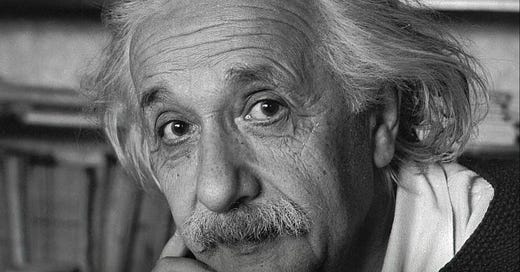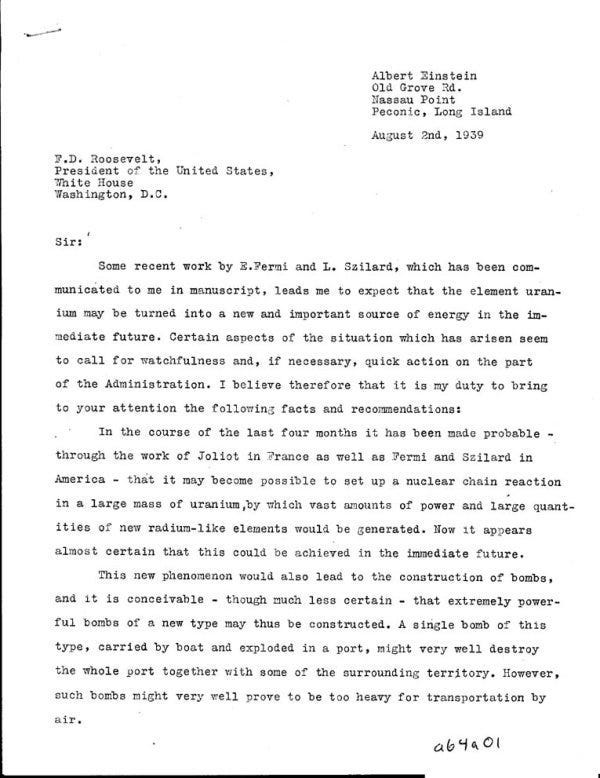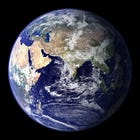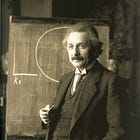Einstein and the Bomb: Humanity is Where Science and Religion Meet
Is it really a stretch to say that the value placed on human life by religion is in agreement with the uniqueness and fragility of intelligent life observed by science?
The documentary ‘Einstein and the Atomic bomb’ on Netflix has gathered mixed reactions from the audience (IMDB score of 6.2/10). As other reviewers have pointed out, there are other documentaries that cover Einstein’s life in more detail. There are also criticisms that its release may have been rushed to coincide with Christopher Nolan’sOppenheimer (IMDB 8.3/10).
However, after watching the movie, it re-emphasized the turbulent times Einstein faced due to his Jewish faith. After his miracle year of 1905, he was a world-renowned scientist. His intellect and charisma had allowed him to be break the boundaries of a traditional scientist. He travelled the world like a celebrity who rubbed shoulders with the best of Hollywood. In 1921, he won the Nobel prize in physics. By the time 1930 he had laid the foundation for theories that underpin our world - Relativity and Quantum Mechanics.
Yet, he had to leave Germany due to fear for his life.
The Netflix production captures his dilemma: whether to remain an ardent pacifist or lend his support for a more direct opposition to Nazi Germany. “An organized force can only be opposed by organized force” — he finally concludes. A conclusion that would play havoc on his conscience until his dying days.
Fast forward to today, the unabated destruction in Gaza and continued devastation of Ukraine have shown that the balance between peace and chaos can be thrown off by the slightest of nudges. And there is plenty of outside interest in providing that nudge.
The movie also successfully portrays the struggles between the scientific and religious sides of Einstein. Many scientists would argue that they cannot believe in anything that cannot be experimentally proven, while religion, by contrast, is built on personal belief and truth. The two might have little overlap.
However, in my experience, there is one thing most religions agree upon — the sanctity of human life. Most religions talk about kindness, values passed down generations, and taking care of others. Granted that when a religious text is taken through interpretation layers, its meaning can vary dramatically.
Sadly, fanatical political movements often manipulate these teachings for their own ends. Like the time depicted in the documentary, where Nazi Germany persecuted Jewish people.

On the other hand, from a scientific perspective, the uniqueness of intelligent life is well established.
We know that life finds a way to survive even in harsh environments, and doesn’t need to exist in the Goldilocks zone. From tardigrades (a.k.a. water bears) living in the vacuum of space to other extremophiles living in caves. There’s now even excitement about finding life on Saturn’s moon Enceladus after NASA’s Cassini spacecraft discovered geyser-like jets spewing water vapor into space.
But we don’t expect any life on Enceladus to be able to communicate to us using Mathematical equations.

Also, despite the vastness of the Universe and the discovery of many exoplanets, we have yet to encounter any sentient beings. At least, no finding has been announced publicly. While it’s statistically improbable that we’re the only intelligent life in the Universe, it certainly seems scarce — or perhaps it exists outside our spacetime.
So, is it really a stretch to say that the value placed on human life by religion is in agreement with the uniqueness and fragility of intelligent life observed by science?
Then can we really continue to ignore the dangerously low value on human life these conflicts create?
Each one of us will have to deal with these questions on our own. Just as Einstein did. He also didn’t have all the answers. Reason can only take you so far. And you certainly can’t force another person to listen to reason. We are emotional beings. Political gamesmanship and opportunism can cause vast groups of the public to abandon reason.
Most of us watch as these events unfold from the sidelines, without a clear way for improving things. Even if one takes an action, as Einstein did with his letter supporting the Atomic Bomb, one cannot predict the outcome of that action.
No one can foresee which path humanity will choose. Einstein’s eventual conclusion was — “Had I known Germany will not succeed in building the nuclear bomb, I would not have opened that Pandora’s box.”
I hope more people can support what the two most successful creations of humanity — science and religion — are telling us. That intelligent life is extremely rare, and we should not destroy it in the only place we know it exists.
Individuals and communities contending with these questions is the only hope. As we know from history and current events, both religion and science can become dangerous tools in the hands of politicians!







